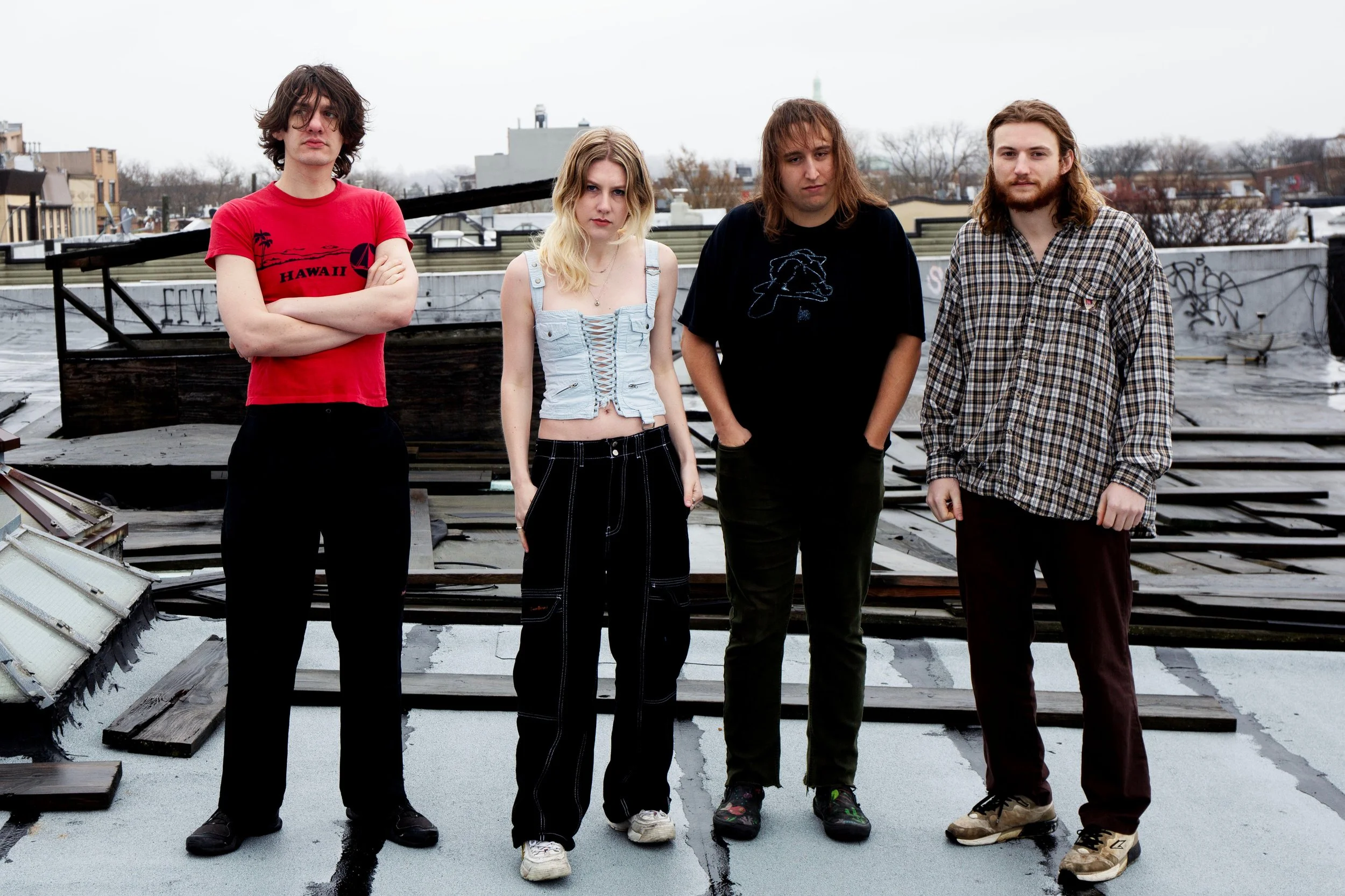Equipment – First time using slang | EP Review
/Brain Synthesizer
In recent years, I’ve found myself growing tired of the increased reliance on nostalgia that seems to hold up a lot of the art being released into the world. I definitely understand the desire to move back to a more familiar time and place, particularly when we’re facing so much uncertainty and myriad anxieties, but too often it feels lazier than it does compelling. This all said, I don’t think the allure of nostalgia should be ignored entirely in the creative process, because it’s still a viable tool and, when done right, can really fucking hit.
First time using slang, the latest EP from Ohio-based punk band Equipment covers so much ground in its quick, yet impressive thirteen minutes. “GLOVES” gets things moving with a fuzzy, heavy riff and repeating lines, “she only wears gloves inside.” Straight out of the gate, this EP feels so incredibly tight, relying mainly on instrumentation and textures to fill out this deceptively uncomplicated opener. The way the colors in the melody shift with each reprisal of the main line results in a stellar, catchy punk track that has a repeat listenability I’ve very much come to associate with Equipment after falling hard for their two most recent singles, “espresso lemonade” and “tequila redbull.”
“LAB COAT” is the track that sticks out for me the most in this collection, drawing you in with one simple guitar line that starts as a modest acoustic riff, playfully swings around to electric, then comes back in full force like a punch to the face… But like, if for some odd reason you really wanted a punch in the face. With lyrics that specifically call out “listening to bands from ‘03,” this track is a perfect example of Equipment’s ability to harness the mystical powers of nostalgia while still keeping things fresh as fuck. The vocals like warm butter in the first few seconds, the bouncy, playful rhythms, the brutally honest and relatable line “Guess I grew out of utility / I’m entitled to my mediocrity" – it all hits. Also, Rainier Beer mentioned.
It's rare to see a band employ the use of a musical suite in an EP, let alone one of this particular genre. Seeing a 7-plus-minute song wrap up an EP in the emo and punk genres is more than welcome to my Coheed-loving-ass, and each piece of “FACIAL PROTECTION” flows like water. It’s contemplative, pensive, and over in a second if you just let it wash over you. “Ensnaring” is the word I keep wanting to come back to, because that’s precisely what these melodies, rhythms, and guitar lines are excelling at. The three movements of this final track deploy three unique approaches, but each arrive at the same spot – wrenching, melancholic mysticism.
I’ve very much come to love the cadence that Equipment is delivering their music – releasing singles and EPs when they have the material that they know will land, and obviously having a preference for quality over quantity. From the minute I listened to this EP, particularly the standout track “LAB COAT,” I knew this release was going to be one to shine as we reflect on the releases of this year. There’s just enough familiarity to rope you in while the Quippiness™ of it all keeps you smashing that replay button. In an era where nostalgia is often used as a crutch, Equipment is using it as any other weapon in their arsenal.
Ciara Rhiannon (she/her) is a pathological music lover writing out of a nebulous location somewhere in the Pacific Northwest within close proximity of her two cats. She consistently appears on most socials as @rhiannon_comma, and you can read more of her musical musings over at rhiannoncomma.substack.com.













